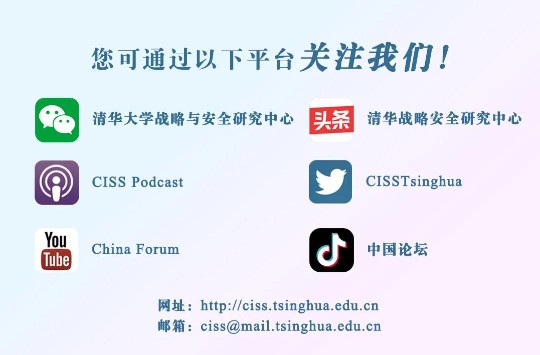编者按
2023年10月8-12日,第18届互联网治理论坛在日本京都举办。相比于以往对互联网治理规则的激烈争论,人工智能全球安全治理,尤其是应对生成式人工智能引发的风险成为了本次论坛的核心。10月10日,清华大学战略与安全研究中心特约专家在《科技日报》发表英文评论“Can Internet Governance Ensure Multilateralism?”,对此次论坛的主要观点进行了评述。文章认为,在技术交往政治化、全球数字治理意识形态化的当下,解决发展不均衡和治理赤字的问题越发需要人类命运共同体意识。基于国际社会广泛参与,形成普遍共识的全球治理准则,更加有利于满足全球数字治理对真正的多边主义的需求。

Generative AI poses risks on human society. (PHOTO: VCG)
By ZHU Rongsheng
Global security governance vis-à-vis artificial intelligence (AI), especially addressing the risks caused by generative AI, has become a core issue at the 18th Internet Governance Forum in Kyoto, Japan, held from October 8 to 12.
In the forum opening speech, Japanese Prime Minister Fumio Kishida said the application of AI has accelerated the spread of false information on the Internet, and called on the international community to jointly deal with the global risks of advanced AI.
Nick Clegg, president of Global Affairs at Meta, formerly Facebook, said that digital technology should not benefit only a few. Greater openness and equity is urgently needed to maintain technology safety and drive innovation.
These calls by international and industry leaders highlight the need for true multilateralism in the international community's pursuit of maximizing the benefits and reducing the risks of digital technologies, rather than abuse of export controls and intensification of the geopolitical competition that is dividing the world.
Kishida said that Japan is working with other G7 members to complete the code of conduct for the Hiroshima AI Process, whose objective is to govern AI to ensure fairness and accountability while promoting transparency.
Though Kishida claimed to listen to the views of the Global South, it is a fact that while the development of governance norms by a small number of countries may be more conducive to rapid theoretical formation, it will never provide a broadly representative consensus to address the global digital governance challenges.
Countries that lack effective use of the Internet are less able to enjoy the benefits of AI, and countries that lag behind in the development of emerging technologies will find it more difficult to have a voice in international governance rules-making.
At a time when technology exchanges are politicized and digital governance is ideologized, it is increasingly necessary to build a community of shared future for mankind to solve the problem of unbalanced international development and governance deficit.
UN Secretary-General Antonio Guterres stressed the need for open and human-center cooperation in digital governance to bridge the global digital divide.
On September 26, China issued a white paper entitled Jointly Building a Community with a Shared Future for Mankind: China's Initiatives and Actions. China calls on all countries to uphold the vision of a shared future, fully communicate and consult, share governance responsibilities, and form broad consensus and concerted actions to address global issues.
Such a governance path based on extensive participation by the international community and general consensus is more conducive to ensuring true multilateralism in global digital governance.

